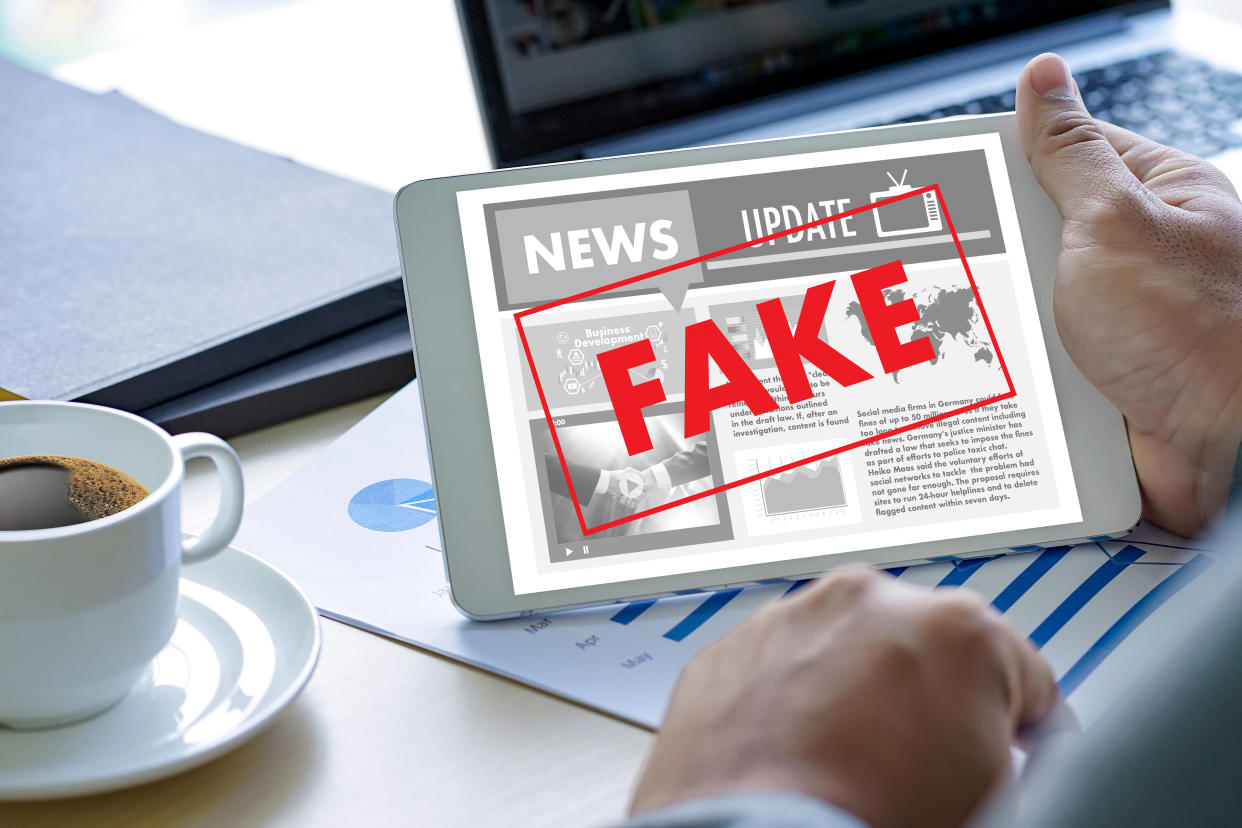Here’s why fake news spreads so quickly (even when it’s not believable)

People who see the same fake news item repeatedly feel less and less “wrong” about sharing it – even when they don’t believe it’s true.
The finding by London Business School researchers may explain why blatantly untrue news stories can spread so rapidly.
Lead researcher Daniel A Effron says the finding, based on research with 2,500 people, could have important implications for politicians and social media companies trying to stop the spread of fake news.
His team found that seeing a headline just once leads people to feel less “bad” about sharing it when they see it again.
READ MORE
Fake news used at a scale 'never seen before' in a UK election campaign
75% of us want fake news to be made a crime
Instagram ‘to become a bigger source of fake news than Facebook’
"We suggest that efforts to fight misinformation should consider how people judge the morality of spreading it, not just whether they believe it," he says.
Volunteers were asked to rate how unethical or acceptable they thought it would be to publish a fake headline, and how likely they would be to "like" it, share it or block or unfollow the person who posted it.
The researchers found that participants rated headlines they had seen more than once as less unethical to publish than headlines they were shown for the first time.
Participants also said they were more likely to "like" and share a previously seen headline and less likely to block or unfollow the person who posted it.

They did not rate previously seen headlines as significantly more accurate than new ones.
The researchers say that efforts to curtail misinformation typically focus on helping people distinguish fact from fiction.
Facebook, for example, has tried informing users when they try to share news that fact-checkers have flagged as false.
But such strategies may fail if users feel more comfortable sharing misinformation they know is fake when they have seen it before.
"The results should be of interest to citizens of contemporary democracies," Effron adds. "Misinformation can stoke political polarisation and undermine democracy, so it is important for people to understand when and why it spreads."


